It might seem as if big business rules the world, but that doesn’t mean they aren’t above suspicion. In fact, companies have to comply with various rules, regulations and laws to avoid criminal and civil negligence.
Most people can’t afford to pay for a lawsuit to sue a company or institution. That’s where a class action lawsuit comes in. It allows groups of people with the same or similar grievances whose alleged damages are too small to warrant an individual lawsuit to join forces and have their cases represented.
Class actions have enabled individuals to hold some of the world’s most powerful organizations accountable for their actions, from the environmental effects of oil spills to the defrauding of shareholders. And in some cases, the settlement amounts are staggering.
These are the biggest class action settlements of all time.
Bottom Line: SCANA Lawsuit
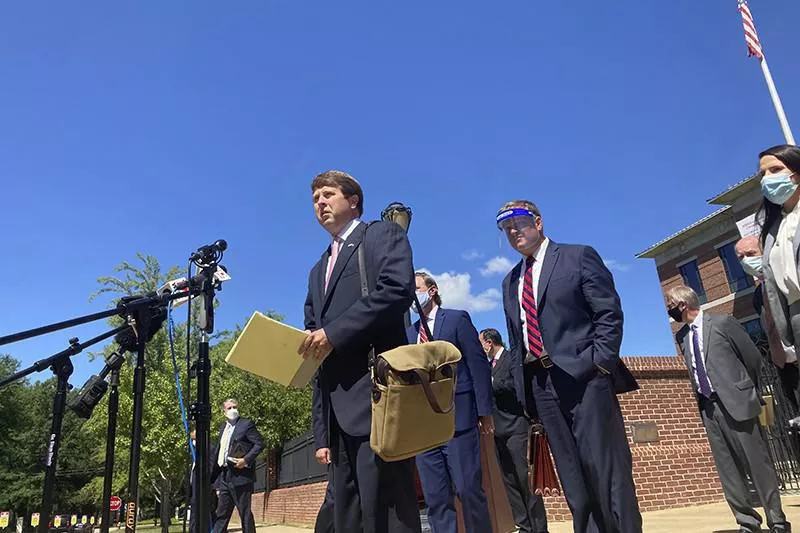
U.S. Attorney Peter McCoy, front, briefs reporters outside of the Matthew J. Perry, Jr. Courthouse after the plea hearing of former SCANA Corp. executive Stephen Byrne in Columbia, South Carolina, in July 2020. Michelle Liu / AP Photo
In 2018, SCANA Corp. agreed to a $2.5 billion settlement with the customers it charged high electric rates (an additional $30 on average, included in their monthly bills) for a failed nuclear plant construction project.
After the construction company building the plant went bankrupt in 2017, customers brought a class action lawsuit.
In July 2020, a federal judge approved a final settlement of $192.5 million between the former SCANA shareholders and the company’s new owner Dominion Energy.
Bottom Line: Exxon Valdez Oil Spill Litigation
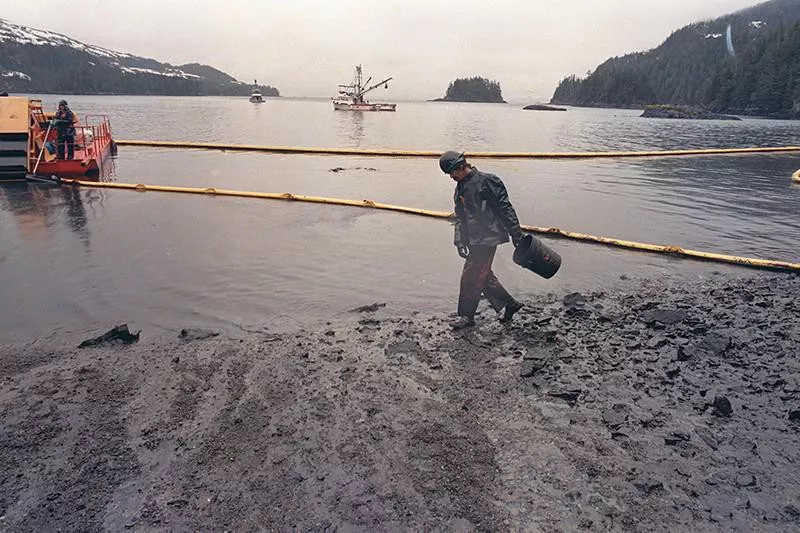
A worker makes his way across the polluted shore of Block Island, Alaska, in 1989, as efforts got underway to test techniques to clean up the oil spill of the tanker Exxon Valdez in Prince William Sound. John Gaps III / AP Photo
Before the 2010 BP oil spill, the most notable – and devastating – oil spill was the 1989 Exxon Valdez spill.
It occurred when a tanker accidentally ran ashore and spilled millions of gallons of oil into Prince William Sound, Alaska.
In 2001, around 32,000 plaintiffs in a class action lawsuit were awarded $5 billion in punitive damages, although the amount was later reduced to $500 million.
Bottom Line: Actos Diabetes Drugs Case

Takeda is one of the largest pharmaceutical companies in the world by revenue. Getty Images
The reputation of Actos, at one time the best-selling Type 2 diabetes drug in the world, took a hit in 2015 when the manufacturer, Japanese drug company Takeda Pharmaceutical, agreed to pay out $2.4 billion over safety claims.
More than 10,000 people claimed they have experienced adverse (and potentially life-threatening) health effects from using Actos.
In 2012, Takeda was accused of wrongdoing by one of its safety consultants, who alleged that the company knew about Actos’ link to several types of cancer but failed to act.
Bottom Line: Tyco Accounting Scandal
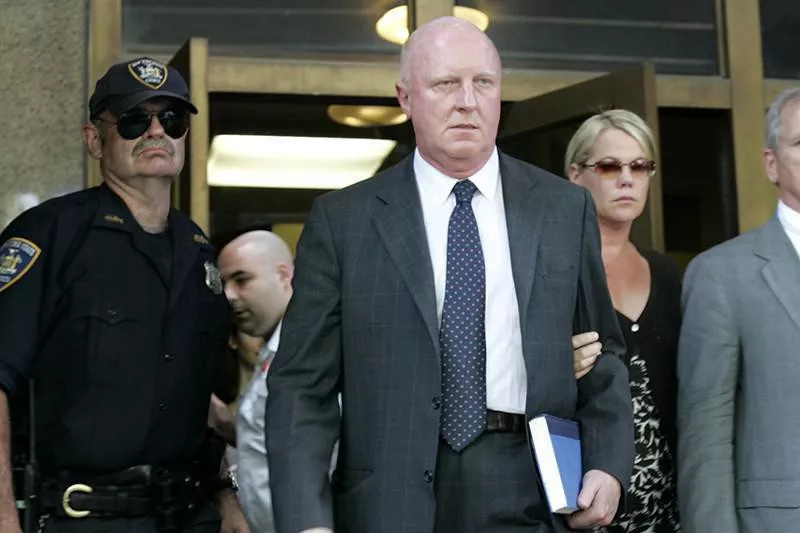
Former Tyco CEO Dennis Kozlowski, center, leaves court with his wife, Karen, right, in New York in 2005. Gregory Bull / AP Photo
In 2006, the U.S. Securities and Exchange Commission filed a civil action against Tyco International Ltd, claiming that Tyco executives defrauded shareholders via various improper accounting practices, including a scheme involving worthless transactions that overstated its reported financial results by at least $1 billion.
The following year, a federal judge in New Hampshire approved settlements worth $3.2 billion. Additionally, Tyco’s former CEO Dennis Kozlowski served six and a half years in prison and paid $167 million in restitution and fines.
Former CFO Mark Swartz also served prison time and paid $72 million in restitution and fines.
Bottom Line: Native Americans vs. U.S. government
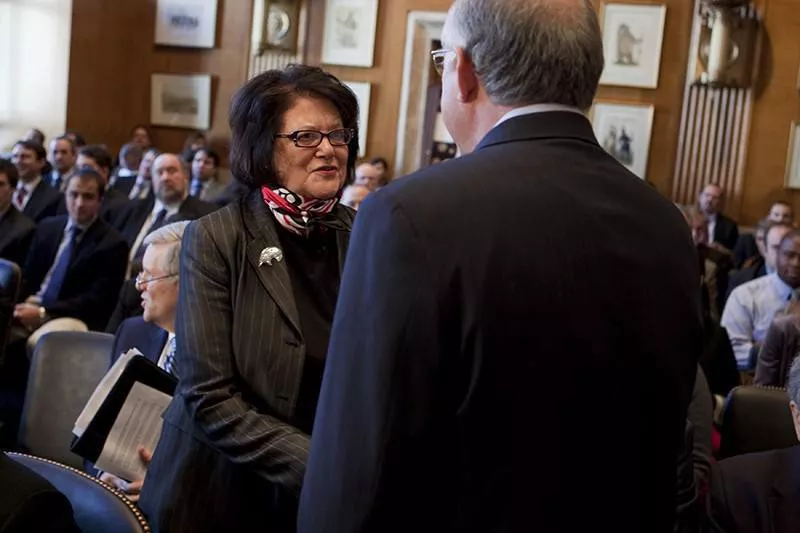
Elouise Cobell, left, shakes hands with Secretary of the Interior Ken Salazar in 2009 in Washington, D.C., before the start of a Senate Indian Affairs Committee hearing on the multibillion dollar Cobell v Salazar lawsuit regarding decades of mismanagement of Indian lands. Evan Vucci / AP Photo
Elouise Cobel remembers her parents wondering why they weren’t getting paid regularly for letting others use their land to farm and drill for oil.
In 1996, Cobell and other Native American representatives brought a class action lawsuit against the Department of Interior and the Department of the Treasury, alleging that the federal government had mismanaged funds in land trust accounts dating back to the 19th century.
In 2011, a federal judge in the District of Columbia gave a $3.4 billion settlement final approval, authorizing $1,000 payments to about 325,000 individuals, beginning in 2012.
Bottom Line: Diet Pills Payout
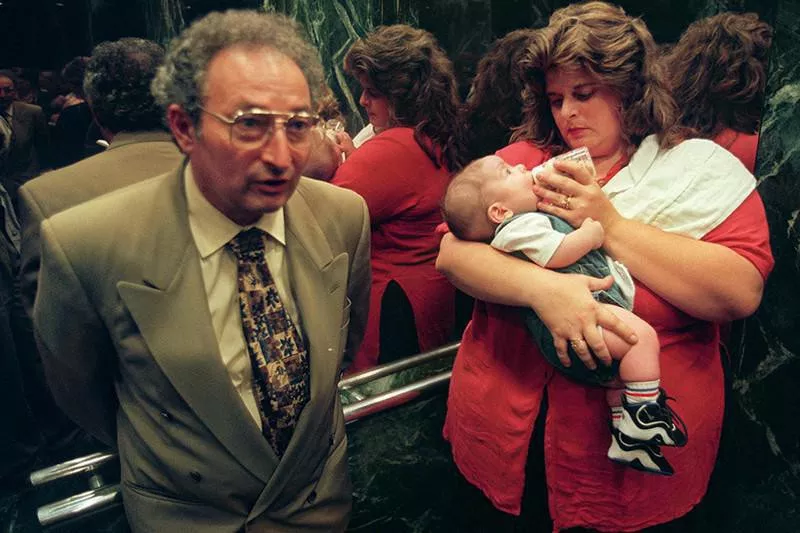
Attorney Ronald Benjamin, left, with his client Dawn Serina and her son Nicholas after a news conference in New York, in 1997. Serina took the diet drug fen-phen during the first two months of her pregnancy and believed it caused his birth defects. Bebeto Matthews / AP Photo
Before the diet drug combination fen-phen, sold by American Home Products Corporation, was pulled from the market in 1997, thousands of people claimed they were injured from using it.
In 2000, a federal judge in Philadelphia approved a $3.75 billion settlement – at the time, one of the largest in a product liability case.
Under the agreement, people who used one of the diet drugs for 60 days or less were eligible for $30 to $60 prescription refunds, while those with a heart valve injury were eligible for as much as $1.5 million.
Bottom Line: WorldCom Telecommunications Accounting Scandal
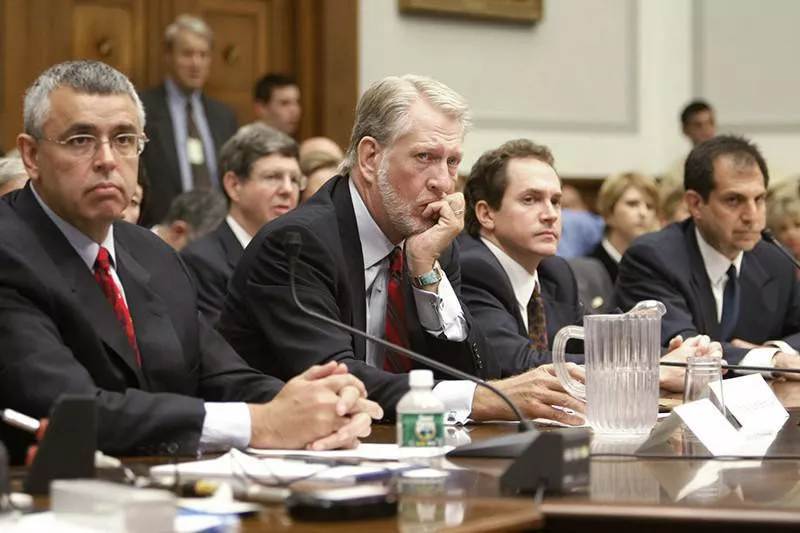
Former WorldCom CEO Bernard Ebbers, second from left, and others, appear before a hearing on Capitol Hill in 2002. Rick Bowmer / AP Photo
In 2005, a federal judge in New York concluded a fraud litigation class action lawsuit against the telecommunications company WorldCom, resulting in settlements to shareholders amounting to $6.1 billion.
The company manipulated its financial information to falsely inflate the earnings on its profit and loss statement by nearly $4 billion. Banks involved in the settlement included Bank of America and Citigroup. JP Morgan Chase paid $2 billion of the total.
For their part in the accounting scandal, former WorldCom executives Bernie Ebbers and Scott Sullivan served jail time.
Bottom Line: Volkswagen Diesel Emissions Scandal
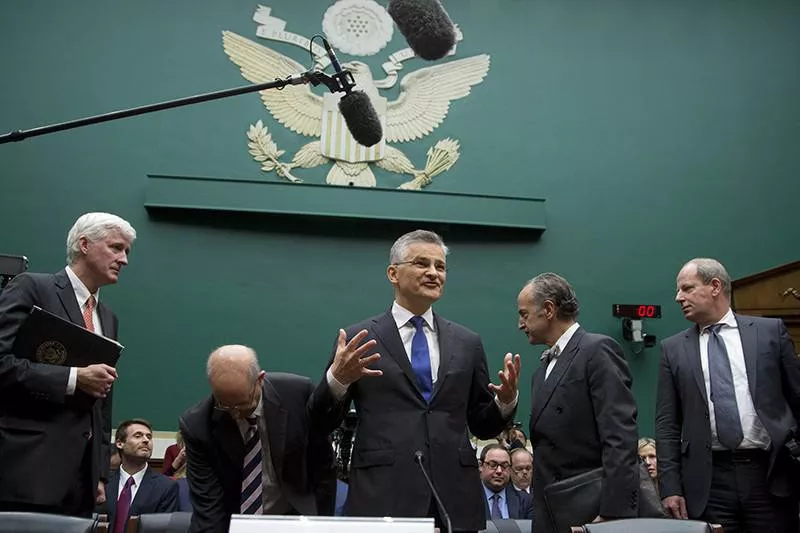
Volkswagen of America CEO Michael Horn, center, before a House Oversight and Investigations subcommittee hearing on Volkswagen’s emissions-rigging scandal in 2015. Manuel Balce Ceneta / AP Photo
The Volkswagen emissions scandal, also called Dieselgate or Emissionsgate, started with a notice of violation of the Clean Air Act from the United States Environmental Protection Agency (EPA).
The agency said Volkswagen had deliberately programmed turbocharged direct injection (TDI) Diesel engines to cheat the testing process.
In 2016, a federal judge in San Francisco approved a $14.7 billion settlement to provide funds for vehicle buybacks at market values prior to the scandal, plus additional cash payments for 475,000 diesel car owners.
Bottom Line: BP Gulf of Mexico Oil Spill
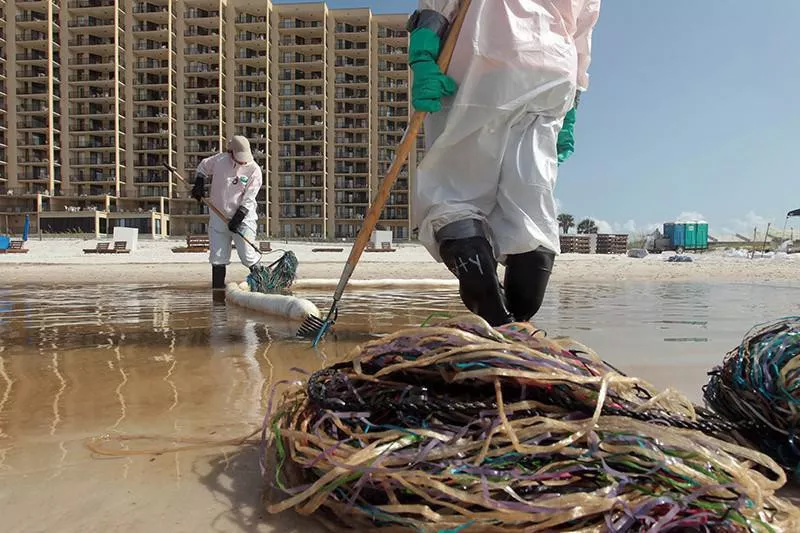
Oil cleanup workers use absorbent booms to collect oil and tar balls in Orange Beach, Alabama, 2010. Dave Martin / AP Photo
Considered to be the largest marine oil spill in the history of the petroleum industry, the BP oil spill (also known as the Deepwater Horizon oil spill or the Macando blowout) started on April 20, 2010, following an offshore rig explosion in the Gulf of Mexico.
Six years later, a New Orleans federal judge approved an estimated $20 billion settlement resolving civil claims over environmental damage from the 134 million gallons of petroleum that spilled into the gulf.
Judge Barbier ruled that BP had been “grossly negligent” in the explosion, which killed 11 workers.